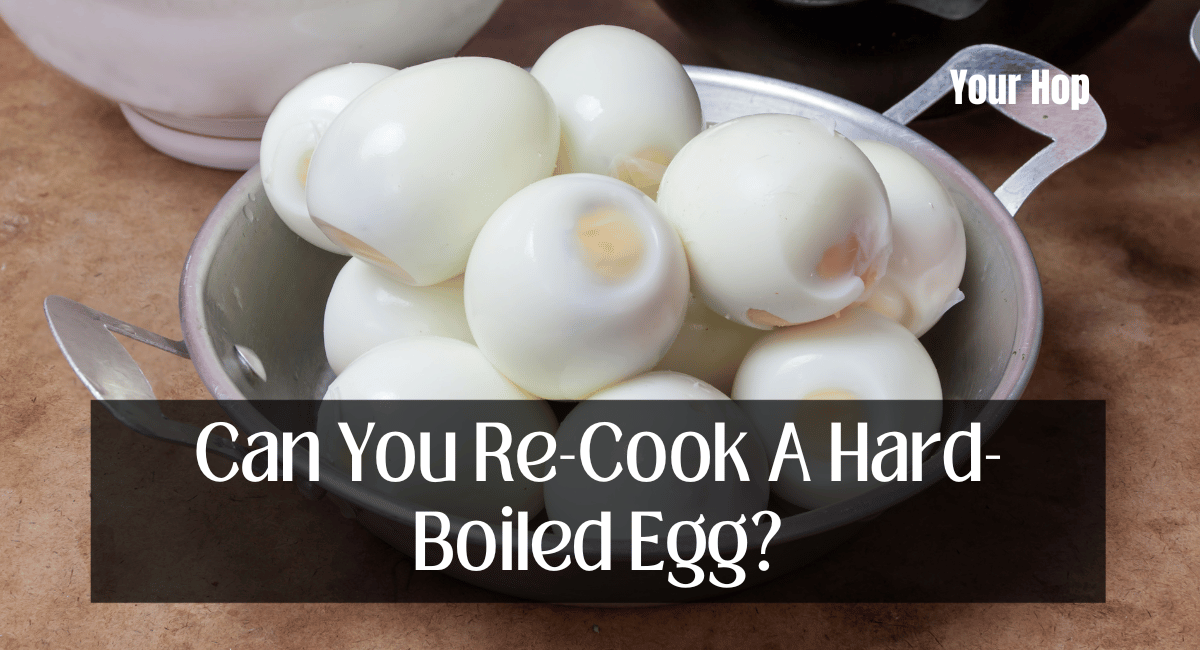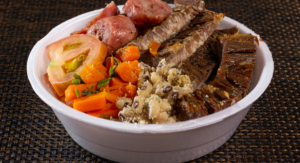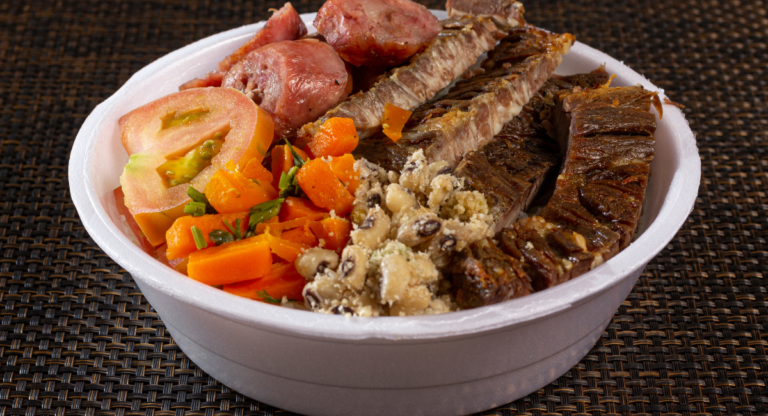Hard-boiled eggs are a flexible and nutritious item that are frequently used as a quick snack, salad topping, or in a variety of cuisines.
But what if you’ve overcooked them or they’ve been lying in your fridge for a while, and you’re wondering if they can be recooked?
In this article, we’ll look at the benefits of re-cooking hard-boiled eggs and offer some pointers on how to make the most of this common kitchen scenario.
Can You Re-Cook A Hard-Boiled Egg?
Re-cooking a hard-boiled egg is generally not advised. Hard-boiled eggs are made by cooking them in water until the white and yolk have hardened. Attempting to re-cook a hard-boiled egg can result in undesired texture and flavor changes.
Why You Should Avoid Re-Cooking Hard-Boiled Eggs?
Overcooking: If you re-cook a hard-boiled egg by boiling it again, you risk overcooking it. Overcooked eggs have a rubbery texture and a dry, crumbly texture. Overcooking can also cause the yolk to develop a greenish or yellowish ring around the edge.
Toughness: Re-cooking the egg whites might make them tougher and less enjoyable to eat. A well-cooked hard-boiled egg’s inherent soft texture may be lost.
Changes in Flavor: Re-cooking the egg might change its flavor. Its flavor may grow more sulfuric, which is unpleasant.
Concerns about safety: Re-cooking a hard-boiled egg that has been left at room temperature for an extended amount of time may not be safe. Bacteria multiply rapidly at room temperature, and warming may not completely eliminate all potential food safety problems.
How To Reheat Hard Boiled Eggs?
While you cannot completely “recook” hard-boiled eggs in the classic sense because they have already been thoroughly cooked, you can gently heat or reheat them for specific recipes or if you prefer them warm. Here’s how to go about it:
1) Using Boiling Water
- Place your hard-boiled eggs in a large, heat-resistant bowl. Because you’ll be pouring boiling water over the eggs, your bowl must be able to handle the heat without shattering. The basin should be large enough to completely submerge the eggs in water. This procedure works best with hard-boiled eggs that have not been peeled and have been left in their shells.
- Boil water in the microwave or on the stovetop. Just enough to cover the eggs in the bowl. To decide how much water to boil, consider how many eggs you are reheating as well as the size of the bowl.
- Pour the boiling water over the eggs and into the basin with care. Make sure the eggs are thoroughly submerged in boiling water to ensure equal heating. Cover the bowl with a plate or a pot lid to keep the heat and steam inside.
- Allow the eggs to heat up in the boiling water for 10 minutes after covering the bowl. After that, carefully remove the lid.
- Remove the eggs from the bowl with caution since the water will be hot. You might use a slotted spoon for this. Then, remove the shell of the hard boiled egg and serve it.
2) Experimenting With Other Methods
- Fill 1 inch (2.5 cm) of water in the bottom of a steamer basket and heat on high until the water boils. Turn the heat down to medium and carefully lay the eggs in the steamer. Cover the basket and set aside for 3 to 5 minutes to allow the steam to reheat your eggs. Turn off the heat, carefully remove the eggs, peel them, and serve.
- The time will differ depending on how cold your eggs were to begin with and how nicely they cooked the first time.
- Experiment with the timing until you find the correct length of time for the degree of doneness and the temperature you desire for your eggs.
- Run hot water through your faucet while holding the egg beneath it. If the water becomes quite hot, put on clean rubber gloves while holding the egg to avoid getting burned. Simply submerge the egg in hot, running water until it reaches the appropriate temperature.
- Place a hard-boiled egg (shell on) in a microwave-safe dish halfway filled with water. To avoid overheating or bursting in your microwave, heat it for 1 minute at a time. Continue heating in 1-minute increments until the desired temperature is reached.
- Alternatively, peel and cut the egg in half, then set it on a microwave-safe tray and heat in short bursts until warmed. To keep it from exploding in your microwave, cook it in tiny increments, such as 10 seconds at a time.
3) Using Reheated Eggs
- Season with salt and pepper. Peel and split your hard-boiled egg in half. Then, season the egg with salt, celery salt, pepper, or your preferred seasoning blend. Enjoy!
- Cut the eggs in half and scrape out the yolks. Add 1/4 cup (59 mL) mayonnaise, 1 tsp. (4.9 mL) white vinegar, 1 tsp. (4.9 mL) yellow mustard, /teaspoon (0.7 g) salt, and 1/8 teaspoon (0.7 g) pepper to the yolks and mash.
- Place the mixture in a Ziploc bag and cut one corner off. The mixture should then be piped into the egg whites.
- Serve the eggs on a serving plate sprinkled with smoky Spanish paprika.
- In a large mixing bowl, combine six peeled and diced hard boiled eggs. 1/4 cup (59 mL) mayonnaise, 2 tsp. (9.8 mL) fresh lemon juice, 1 tsp. (15 g) minced onion, 1/4 teaspoon (1.4 g) salt, 1/4 teaspoon (1.4 g) pepper, and 1/2 cup (170 g) finely chopped celery are all good additions. Mix all of the ingredients together and serve alone or as a sandwich filler.
It is possible to re-cook hard-boiled eggs, but the outcome may not always be the same as when they are cooked perfectly the first time. If your eggs are slightly overcooked, try briefly re-cooking them. However, reheating them is a safer alternative if they are already fully cooked and cold. Use overcooked eggs in recipes like egg salad or deviled eggs to make the most of them. When reheating or re-cooking eggs, remember to prioritize safety in order to enjoy this nutritious food without jeopardizing your taste buds or health.
Thanks for reading. I hope you find it helpful.






